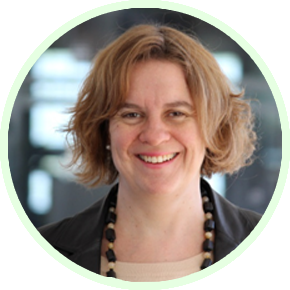An interview with Christine Heller del Riego, ESOF2014 Chair Career Committee


1. The ESOF2014 Career Programme aims to provide a platform to discuss opportunities and obstacles affecting a career in research. Can you tell us about your expectations for the 2014 edition of the Career Session planned for ESOF?
I believe that several changes in the structure of the programme will benefit the participants and the outcome of their ESOF experience. The principle modification is that it will take place on the weekend prior to the official ESOF2014 opening ceremony, which is scheduled for Sunday afternoon. This means young researchers will no longer have to choose between a session that could advance their career and one that could rekindle their passion for science.
A Career Plenary session is also planned after the European Young Researcher Award Ceremony on Saturday evening. This will be followed by a choice of evening activities at the Science in the City Festival, such as Science and Cocktails.
2. Did the number and quality of applications for the Career Programme fulfill the ESOF2014 Career Committee’s expectations?
Yes, the committee was very pleased with the quantity, quality and relevance of the proposals that were submitted. With a success rate of 28%, it was challenging for us to make the final selection.
3. As the Chair of the ESOF2014 Career Committee, can you tell us about your role and how work is organised within the Committee? Does your previous experience as a Marie Curie Fellow (as a research assistant working towards a Ph.D. in Electric Engineering) help you anticipate researchers’ expectations for the Career Programme?
The committee began its assignment by deciding on the content (in the open call for career proposals) after a very fruitful discussion on the trends in career developments. The proposals were distributed to the members who graded them against an evaluation criteria. The committee then met in the fall for a review meeting and selected the appropriate session proposals for the programme based on their evaluation results.
We met again to propose speakers for the Career Plenary session and topics for invited career sessions. The committee was also asked to give guidance on other ESOF career-related issues, such as travel grants for young researchers and the Picnic with the Prof ESOF event, which in this edition will consist of a traditional Danish lunch. As the Chair of the Career Committee it was my role to lead the proposal selection process, moderate the discussions of the committee and serve as a link between the Career Committee and the Programme Committee.
My background as a Marie Curie Fellow gives me an obvious advantage in understanding the problems, the pitfalls and the opportunities for young researchers studying abroad. Additional skills and the network from a foreign country may or may not be valued when you return. In addition high expectations and brilliant ideas may face austerity and a change in research priorities. On the other hand, there are opportunities even during difficult times for those who are flexible and open minded regarding new opportunities.
4. As a preview of the ESOF2014 Career programme, could you list some of the most recent career development trends?
The present focus in career development for researchers is centered on preparing them for employment in other sectors other than academia. The fact that only a very small percentage of doctoral students obtain a permanent academic position raises means we need to revise the different forms of doctoral training.
Furthermore, it is clear that young researchers should be encouraged and prepared to be ‘creative, critical and autonomous intellectual risk takers’, as these skills are important in promoting innovation and employability. Aspects of doctoral education will be debated in several sessions – from transferable skills, environmental requirements, skill sets, and mobility – based on the principles for Innovative Doctoral Training.
5. Marie Curie Fellows and Alumni are strongly encouraged to attend the Career Programme. Can you tell us how they will benefit?
The Marie Curie Fellows will have the opportunity to learn about the recent trends, consult specific issues with career advisors from different European countries and compare career paths within different fields. In the career sessions they can voice their needs, expectations and concerns, as well as contribute to changing the future research community.
During the core event they will have the opportunity to be inspired by recent scientific results while networking with researchers, industry representatives, decision makers and journalists. I sincerely believe that ESOF is a transformative event, especially for a young research fellow.
For more information on the ESOF2014 Career Programme
https://esof2014.pathable.com/#meetings
For more information on the ESOF 2014 Career Committee
http://esof2014.org/info/esof-2014-committees/career-committee
For more information on the Call for Career session proposals (closed)
http://esof2014.org/calls-for-proposals/2CallforCareerproposals.pdf